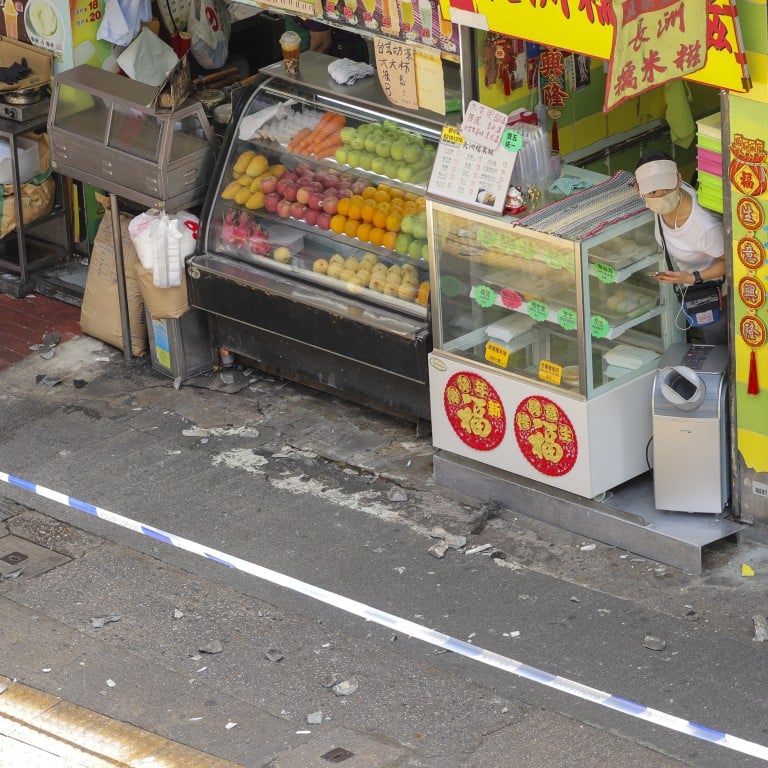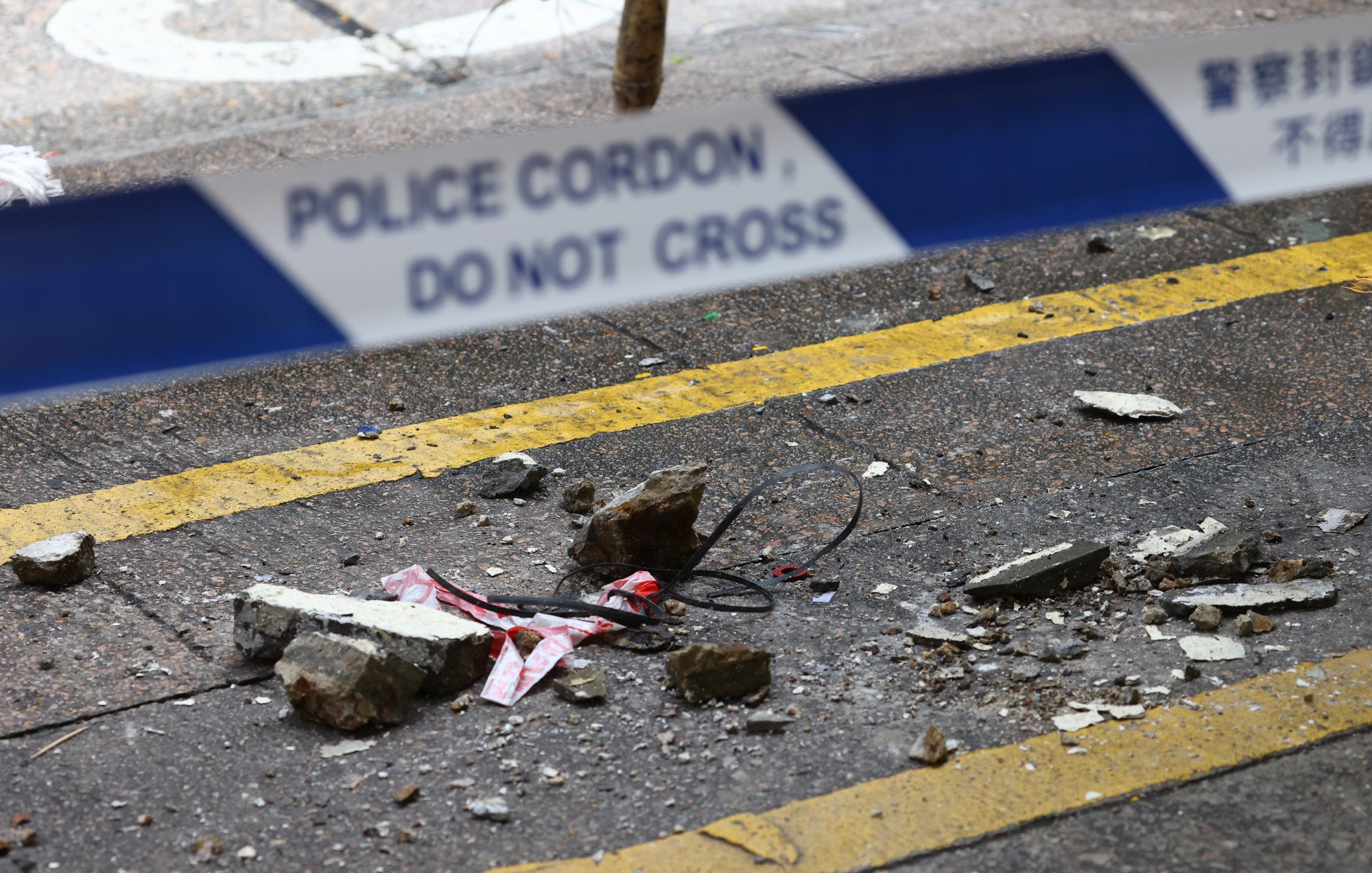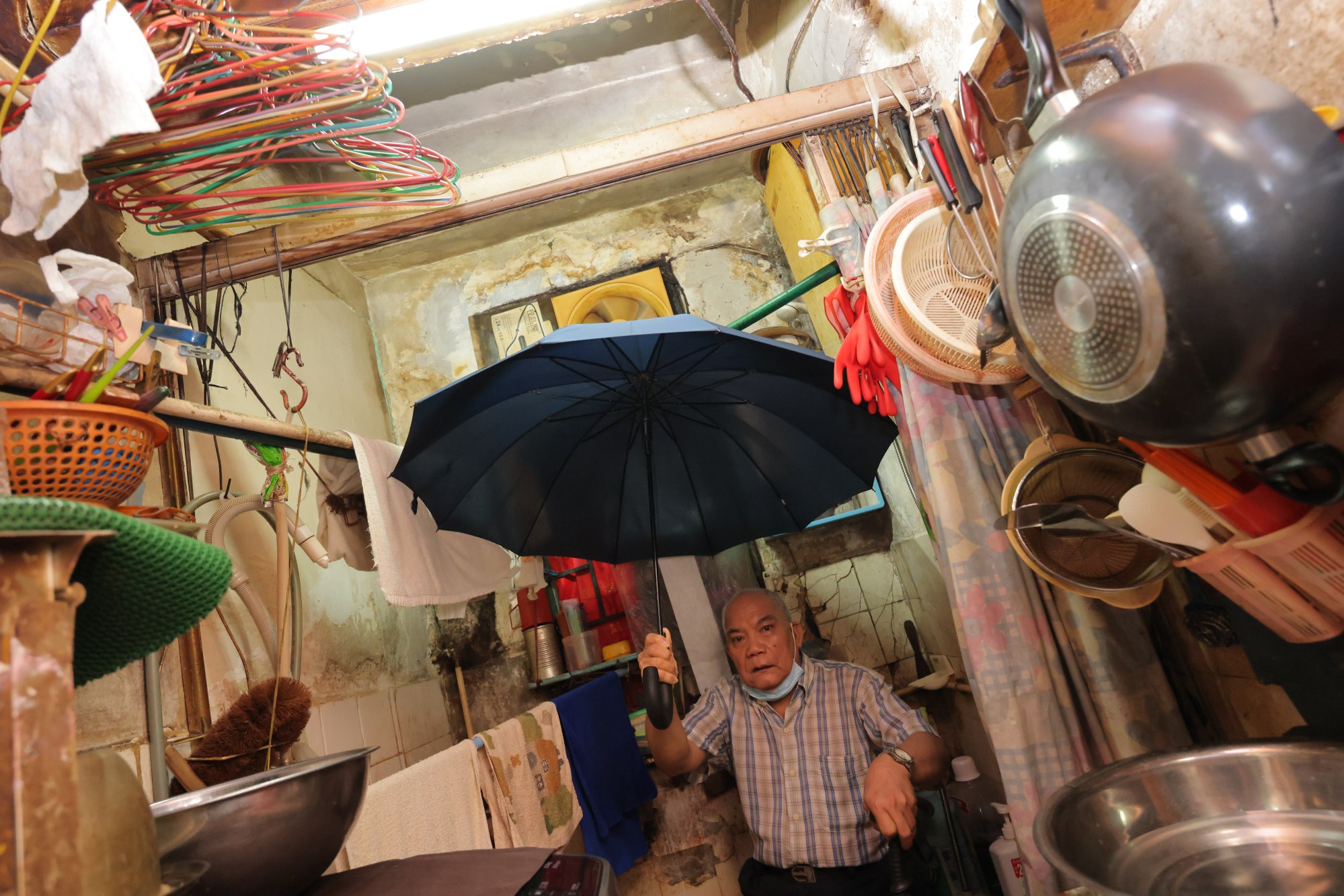
As Hong Kong’s old buildings rain concrete, it’s time for urgent action
- Authorities are pushing to make preventive maintenance the industry practice. But property managers and owners must also play their part in the upkeep of buildings
Sadly, the decay of buildings in Hong Kong is nothing new, as the bulk of our stock dates back to the 1970s and 1980s. But the situation has been getting worse. A government report last year found that more than 26,000 buildings were 30 years or older, of which about 20 per cent (5,200 buildings) were classified – alarmingly – as being in a “varied’ or “poor” condition.
Under the Building Management Ordinance, property managers should establish and maintain a “special fund” to meet irregular expenses such as renovation, improvement works and the repair of common areas. This is to ensure a piggy bank for the upkeep of the building.
But an Urban Renewal Authority (URA) survey has revealed that only a third of buildings had set up this special fund. Even among these, all too often, the balances were inadequate to cover the cost of major maintenance works. This is mainly because many owners lack the professional knowledge needed to determine the level of reserves required or may be reluctant to participate in these matters.
Ideally, the special fund is held by the property manager who acts as the trustee for all owners, with the annual contribution and other details determined at an owners’ meeting. In the absence of a special fund or where reserves are insufficient, owners face the potentially astronomical costs of large-scale maintenance. Some owners choose to drag out the process or simply reject such rehabilitation projects outright.
In light of this, several recommendations were put forward in the Consumer Council’s recent study “Transparency and Governance – Optimising Value of Property Management Fee in Hong Kong”. First, owners are encouraged to be more aware of, engaged with and involved in building management matters such as repair and maintenance.
Second, the relevant government authorities should step up public education and publicity. Among others, the linchpin role of owners’ corporations in effective building management and maintenance should be made clear. Hopefully, this could increase owners’ interest and willingness in appointing a management committee and forming an owner’s corporation, in accordance with the Building Management Ordinance, to effectively enforce their rights.
Third, to avoid the unpleasant shock of huge maintenance bills, we recommend establishing a capital works fund with a 10-year maintenance plan to ensure sufficient reserves for future repair and maintenance needs.

But these recommendations and solutions only apply to newer buildings. Some buildings are so old that their deed of mutual covenant was drafted before proper legislation and guidelines were in place. These dated covenants often do not clearly set down the responsibilities for maintenance or management, nor the cost-sharing principles for incurred costs.
Changing the covenant requires unanimous consent, an onerous feat as some owners are now uncontactable, even untraceable. This is a stumbling block for maintenance work at some buildings and, in time, tenants are driven away by the unpleasant state of the structure, creating a vicious circle.

To this end, the Consumer Council is calling for a relaxation of the requirement of unanimous consent, taking instead 75 per cent of undivided shares as a determination of majority consent for the purpose of amending the deed of mutual covenant, excluding those terms relating to share allocation.
To address concerns over a potential power abuse and to protect minority interests, the proposed amendment mechanism should only be available to buildings not less than 10 years old, conducted under stringent procedures and be subject to appeal.
In the dense urban areas of Hong Kong, building decay could have huge consequences. The frequent episodes of crumbling concrete have sounded the alarm for the ageing building crisis. Legislative reform and the joint effort of the property management industry, developers and property owners are needed to resolve the problem.
The government has acted swiftly to identify buildings in dire need of maintenance and repair. Ultimately, prevention is better than cure. We urge owners of newer developments to promptly set up a general maintenance fund and proactively participate in building management matters, not only to maintain building safety and sustainability, but also to uphold the condition and market value of the property.
Clement Chan Kam-wing is chairman of the Hong Kong Consumer Council

